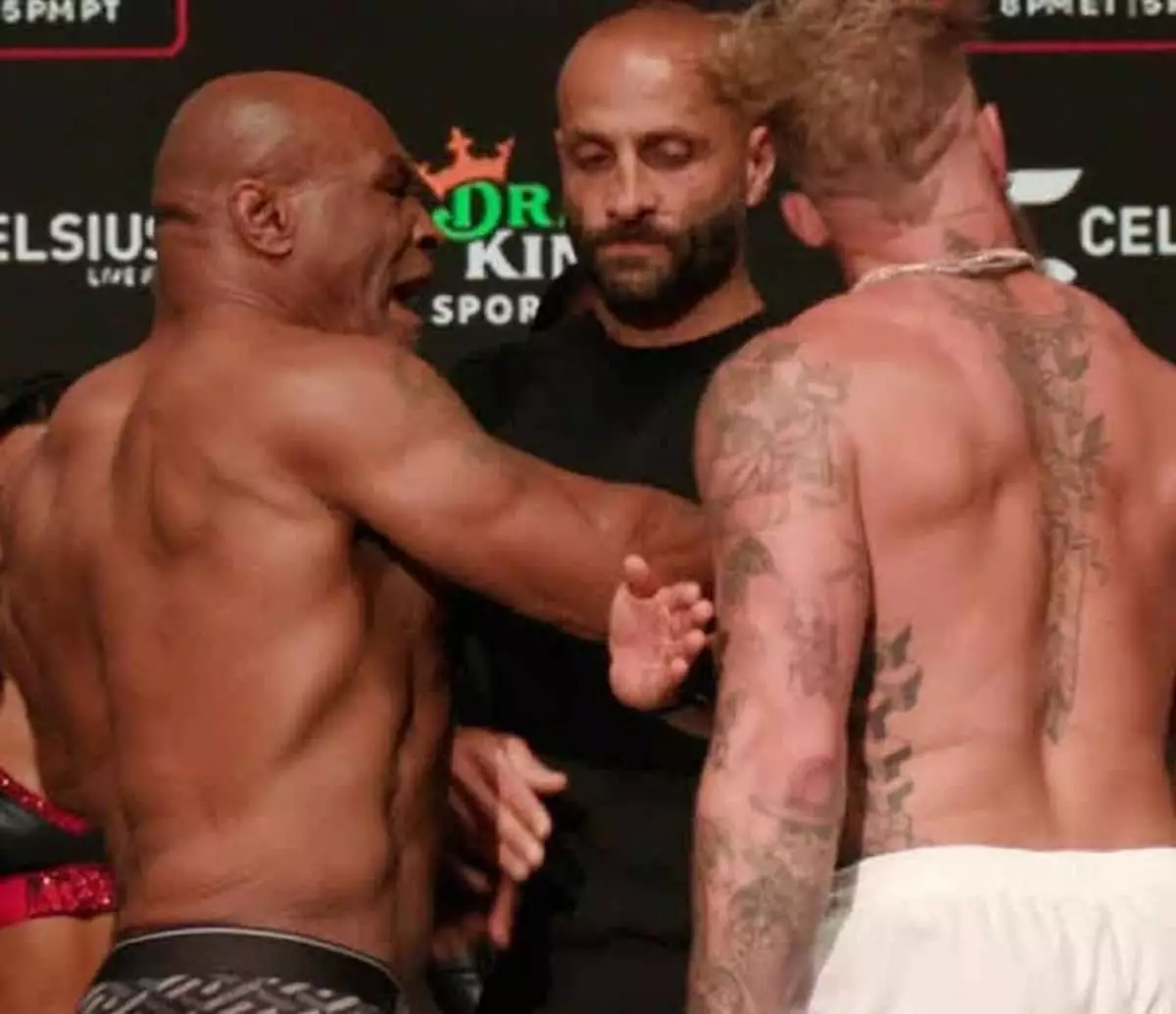In the world of boxing, face-offs are often theatrical, designed to pump up the crowd and build anticipation. Yet, the scene between former heavyweight champion Mike Tyson and social media star Jake Paul during their recent weigh-in felt far removed from mere theatrics. What unfolded was a moment charged with genuine intensity that painted a vivid picture of the contrasting worlds these two fighters inhabit. Tyson’s slap, delivered with palpable force, stunned both Paul and the audience, revealing how unpredictable and raw combat sports can be.
From the outset, the encounter bore the traits of a genuine confrontation. Jake Paul’s decision to rush at Tyson was reminiscent of a bull charging, and it quickly became clear that this was a grave miscalculation. At 58 years old, Tyson showed that he still possesses the reflexes and powerful demeanor of a fighter who hasn’t just retired into obscurity. His slap, which sent Jake’s head snapping sideways, was more than a physical blow; it symbolized a clash between youthful bravado and seasoned experience. Tyson’s expression afterwards conveyed satisfaction, almost as if he had imparted a life lesson to the brash YouTuber. This interaction reflected the broader narrative of the bout: a legend against a controversial figure seeking validation in the boxing ring.
This altercation did more than just create buzz for the fight; it laid bare the character dynamics at play. Mike Tyson, long hailed as one of boxing’s most formidable figures, brings with him layers of history, resilience, and ferocity. Conversely, Jake Paul, often scrutinized for his fighting credentials, combines bravado and the quest for relevance in a sport that values legacy over fame. After the slap, Paul’s immediate reaction—inviting Tyson to hit him again—spoke volumes about his penchant for drama and a desire to posture as a tough competitor, despite the apparent humiliation he just endured. This interaction might be interpreted as a misguided attempt to mask vulnerability; however, it casts doubt on whether he truly understands the seriousness of stepping into the ring with an icon like Tyson.
In the lead-up to their highly anticipated eight-round main event, the atmosphere buzzed with curiosity and tension. Jake Paul’s confrontational interview following the weigh-in painted a picture of barely contained anger, with his threats echoing throughout the boxing community. He articulated not only his desire to dominate Tyson but also his emotional state—a mix of bravado and frustration that many have seen in flashy professional wrestling matches rather than a legitimate sport. His fury was palpable, suggesting a realization that he had crossed swords with someone who thrives on intimidation, a hallmark of Tyson’s legendary status.
Yet, one can’t help but wonder about the psychological implications for Paul. His body language during the interview mirrored that of a performer struggling to reconcile the persona he projects with the reality of the threat he faces in Tyson. This was not merely an exercise in entertainment; it represented a convergence of celebrity culture and traditional combat sports, raising questions about authenticity, vulnerability, and the evolving landscape of boxing. Would Paul rise to the occasion, or would he succumb under the pressure of facing a man who once dominated the sport?
Ultimately, the events at the weigh-in served as a precursor to what promises to be an electrifying encounter. It’s a moment where two worlds collide: the venerated history of boxing embodied by Mike Tyson against a modern spectacle represented by Jake Paul. As the anticipation swells, one must ponder not just the outcome of the fight but also what it signifies for the future of boxing. Will this encounter bridge the gap between traditional boxing fans and a new generation captivated by the antics of social media? Only time will tell, but if the weigh-in was any indication, there’s more at stake than just the result of a single bout—it’s a clash of legacies, identities, and the ever-evolving narrative of sports entertainment.

